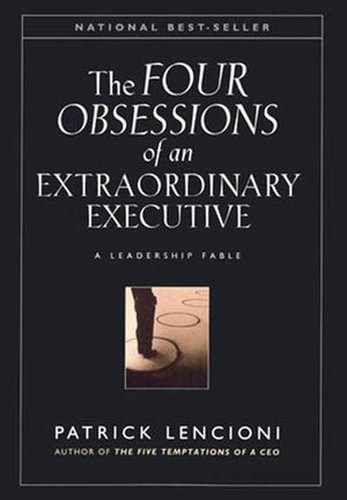TWO CEOS
In many ways, Rich O’Connor and Vince Green were alike. Besides being CEOs of the area’s top technical consulting firms, they were essentially likable and decent men. Both were tireless workers, fierce competitors, and committed husbands and fathers.
They also happened to receive their training at U.C. Berkeley’s business school at the same time. Vince had worked with a top management consulting firm before B-school. During his two years at Berkeley, he followed the stock market religiously, maintained contact with business associates, and read as many analyst reports as he could get his hands on. He graduated near the top of his class.
Rich also earned impressive grades but maintained a relatively low profile in the process. To earn extra cash, he waited tables and tutored undergraduate students, and when he wasn’t working or in class, he could be found at the psychology lab where his wife-to-be worked. Because Rich spent so much time away from the business school, he didn’t establish quite as many close relationships with classmates as most others did.
When Vince decided to start his own consulting firm just a few years out of school, no one was surprised. When Rich did the same thing two months later, no one noticed.
The timing for getting into technical consulting was ideal, and for their first three years in business, both firms grew dramatically. Each CEO believed his success was the result of extremely hard work, a little luck, and amazing attention to detail within his respective firm.
Both of them received regular reports about virtually every consulting engagement that their firms took on. They knew where every dollar was being spent, how much every client owed, and which competitors were bidding on which projects.
During this time Rich and Vince developed a cordial though somewhat distant relationship. Although the two rivals respected one another, they also knew that the other would be glad to take his business away from him if he lost his edge. So they were determined to never lose their edge.
Neither firm established any discernible advantage over the other, and they shared much of the emerging local spotlight when it came to consulting. Vince liked to say that their companies maintained a degree of balance that made coexistence possible, even enjoyable.
Until something changed.
Out of nowhere, Telegraph seemed to gain an advantage over its rival. Before he knew what was happening, Vince found himself increasingly frustrated by his firm’s inability to compete with Telegraph on a variety of issues. What he didn’t understand at the time was that in spite of all their similarities, he and Rich O’Connor had suddenly become quite different CEOs.
..................Content has been hidden....................
You can't read the all page of ebook, please click here login for view all page.
